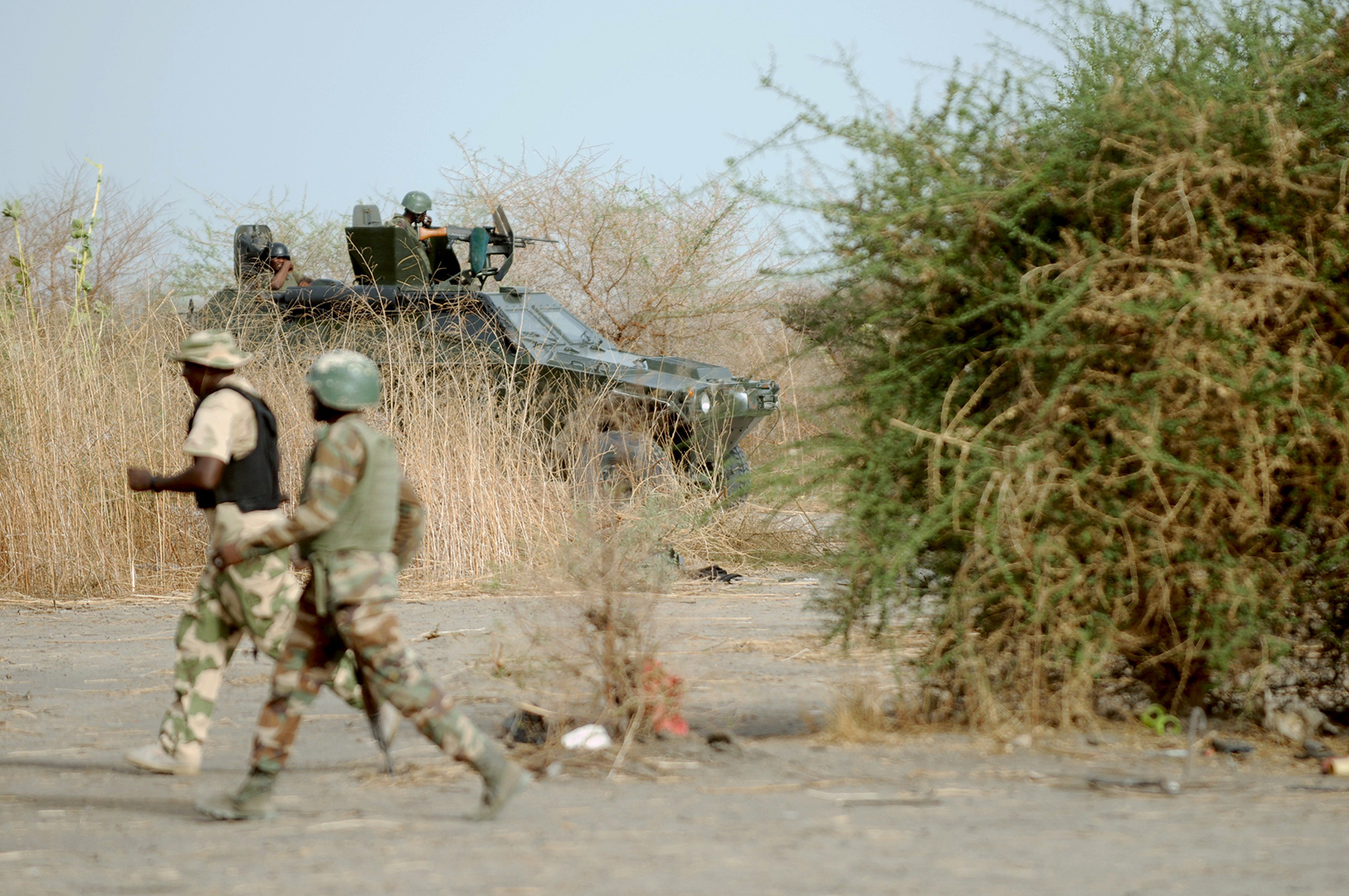The Nigerian Military has sighted the abducted Chibok schoolgirls in camps in Sambisa Forest, Borno, according to Premium Times.
This reported sighting by Nigeria’s Special Forces has not been confirmed by military authorities. Here is the report:
Nigeria’s Special Forces from the Army’s 7th Division have sighted and narrowed the search for the more than 250 abducted Chibok schoolgirls to three camps operated by the extremist Boko Haram sect north of Kukawa at the western corridors of the Lake Chad, senior military and administration officials have said.
“It has been a most difficult but heroic breakthrough,” one senior military official said in Abuja.
That claim was supported by another senior commander from the Army’s 7th Division, the military formation created to deal with the insurgency in the Northeast. The 7th Division is headquartered in Maiduguri, the Borno State capital.
The breakthrough comes at a critical moment for the Nigerian military that has faced cutting criticism over its handling of the kidnapping of the girls more than a month ago.
The news is also key for the Maiduguri-based 7th Division a week after a humiliating mutiny by troops of its 101 battalion who fired at the General Officer Commanding the division, Ahmadu Mohammed, a Major General.
Maj. Gen. Mohammed escaped unhurt, but has since been redeployed. The soldiers blamed him for the deaths of at least four of their colleagues killed near Chibok, a remote community in Borno State where the girls were taken captives April 14.
But military insiders said Mr. Mohammed was targeted for daring to arrest the growing indiscipline within his troop.
The abductions have sparked international outrage, with the United States, United Kingdom, France and Israel, providing intelligence and surveillance assistance.
Nigerian military officials coordinating the search and other officials in Abuja said Boko Haram insurgents split the girls into batches and held them at their camps in Madayi, Dogon Chuku and Meri, all around the Sector 3 operational division of the Nigerian military detachment confronting the group’s deadly campaign.
Another source said there is a fourth camp at Kangarwa, also in Borno State. That claim could not be independently verified.
“Our team first sighted the girls on April 26 and we have been following their movement with the terrorists ever since,” one of our sources said.
“That’s why we just shake our heads when people insinuate that the military is lethargic in the search for the girls.”
The location of the abducted girls – north east of Kukawa – opens a new insight into the logistic orientation of Boko Haram, responsible for thousands of deaths in a five-year long insurgency. President Goodluck Jonathan said the group has killed at least 12,000 people so far – that’s minus the hundreds killed in a car bomb on Tuesday in Jos and the about 10 murdered on Sunday in Kano in a suicide bombing.
But the details established by the military shows that while the world’s attention is focused on the Sambisa forest reserves, about 330 kilometres south of Maiduguri, the terrorists mapped a complex mission that began at Chibok, and veered north east of Sambisa, before heading to west of Bama and east of Konduga.
With the sighting, officials fear that Boko Haram militants may be seeking to create new options of escape all the way to Lo-gone-Et Chari in Cameroon to its Southeast, Lake Chad to its east and Diffa in Niger Republic to its north, providing a multiple escape options in the event of hostile ground operations against it.
Notwithstanding the sighting, the government is said not to be considering the use of force against the extremists, a choice informed by concerns for the safety of the students.
But with growing local and international pressure, a likely option may be for the authorities to enter into talks with the group, whose leader, Abubakar Shekau, in a May 12 video broadcast, called for dialogue and “prisoner” swap with the government.
The government has ruled out that option in the open but knowledgeable sources in Abuja hinted at a possible “twin track” approach that includes open rejection and a closet engagement.
“That option is not as bitter as you think in the face of the alternatives confronting us,” the source who has deep insight on the thinking of the administration, said.
“Government is working hard to free the girls in less than one week, possibly before end of this week,” the source said.
Defence spokesperson, Chris Olukolade, a Major General, told PREMIUM TIMES he would not comment on the ongoing rescue operation.
“You don’t expect me to tell you that the girls have been sighted or have not been sighted,” Mr. Olukolade said. “I will only say our team are working hard and taking note of every information provided to ensure that our girls are rescued without delay.”







